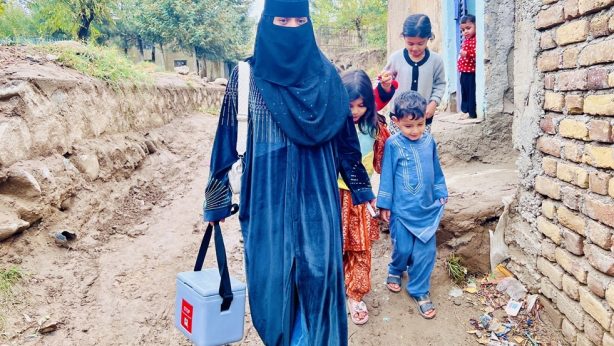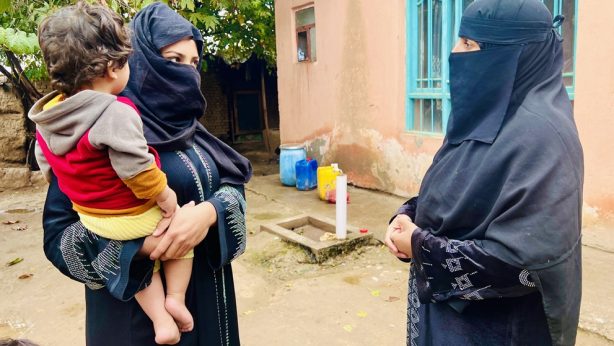Afghan cricketers use sports limelight to advocate for Polio vaccinations
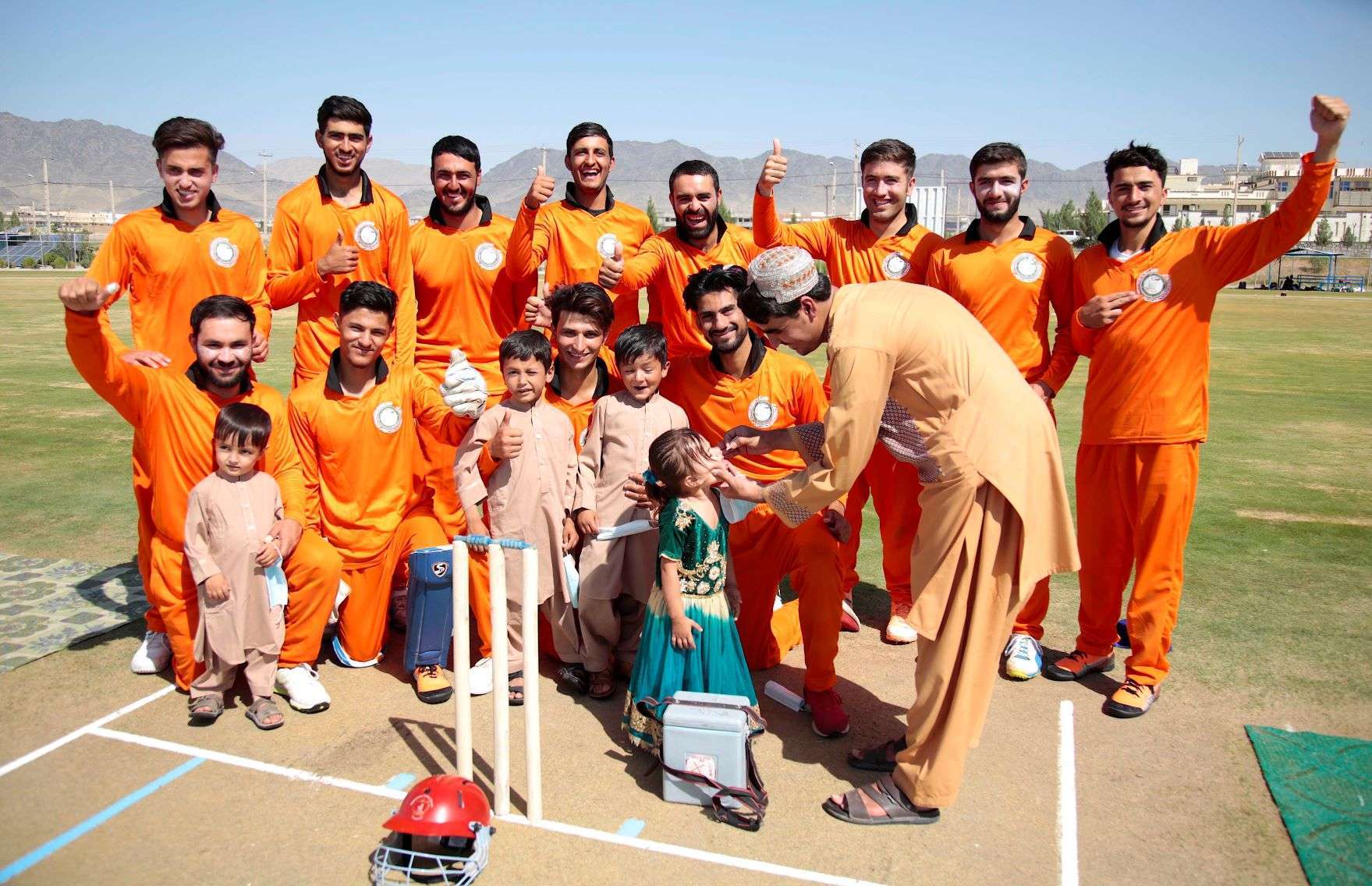
KANDAHAR, Afghanistan, September 2022 – A clash of bats and balls between two dominant provincial cricket clubs – Maiwandi and Khapalwak – at Kandahar cricket stadium, south of Afghanistan, was a match filled with pomp and color as crowds streamed in to cheer their favorite teams. Amidst the electric atmosphere, Polio programme officials seized the opportunity during the team’s innings break to inaugurate the September 2022 nationwide Polio campaign for children under five years
“Today’s game is dedicated to raise awareness on children’s health issues,” said Niamatullah Khoram, the match umpire. “We want to use this chance to appeal to all parents to immunize their children against Polio. Caregivers need to know that Polio disease cripples children, and when that happens, they miss out on a lot in childhood, and later in life, including playing a wonderful game like cricket.”
18-year-old Bilal Tarin is a rising cricket star. The middle order batsman plays for Khapalwak cricket club, while attending Kandahar University. Last year 2021, he was selected to play for the Afghan National Under 19 team in the Bangladesh series and Asia cup in Dubai. Early this year, he represented the country in the Under 19 World Cup in the West Indies. Bilal has a passion to drive Polio out of Afghanistan.
“I have seen several children’s lives ruined by Polio in my neighborhood,” explains Bilal sadly. “Sometimes, I imagine that if my parents hadn’t vaccinated me, I may have ended up the same way as those children. I know Polio is a problem in the country but I want to do something practical about it. I want to bring my team together for this important cause.”
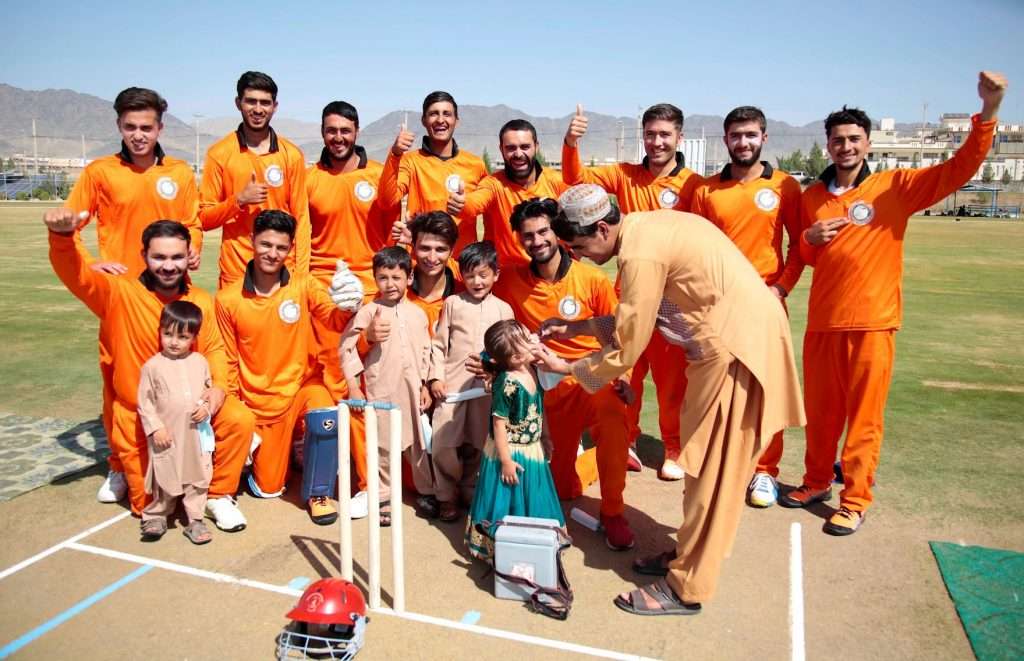
The rise of cricket in Afghanistan is a source of national pride. Despite the country’s political and humanitarian crises, the national team has consistently ranked amongst the top 10 in the world. The national cricket players have been actively involved in raising Polio awareness in the country.
Rashid Khan, one of Afghanistan’s top bowlers, has been influencing the Polio eradication trajectory in the country. In 2019, he was appointed as the UNICEF Afghanistan’s National Ambassador to promote children’s health issues including Polio, immunization, girls’ education, and reduction of malnutrition, among other priorities.
“Cricketers are admirable role models for the youth and young families in Afghanistan,” says Dr. Shadad, the Deputy Director of Ministry of Public Health in southern region. “We believe, this is the right time for these celebrated cricketers to spread the Polio message. No child should ever get paralyzed by a disease that can easily be prevented by a vaccine.”
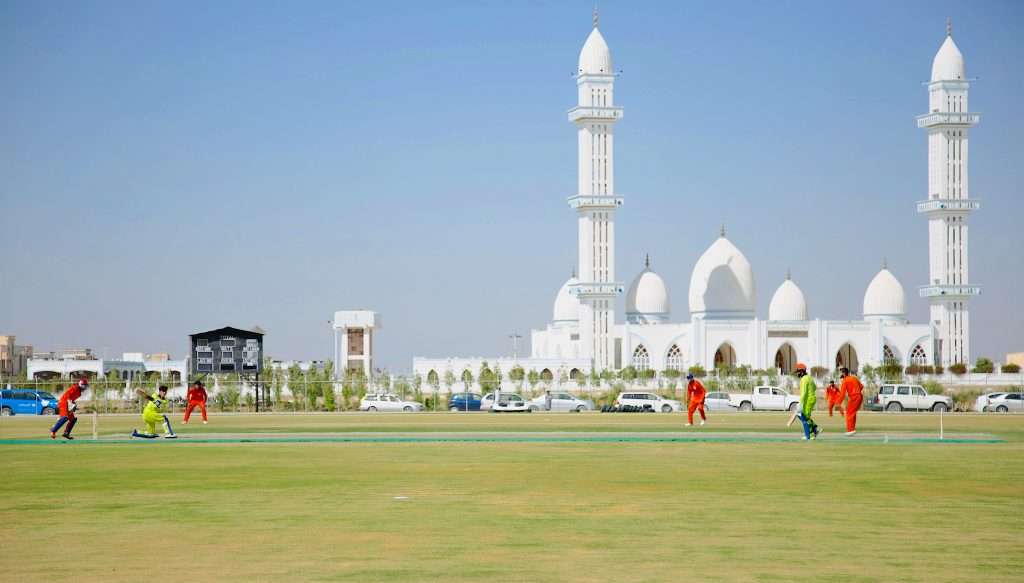
For a long time, the southern region of Afghanistan especially, Kandahar city was referred to as the ‘epicenter for poliovirus circulation’ and, as result, many children in the region became disabled. For instance, in 2019, out 29 wild poliovirus (WPV1) cases reported nationwide, 20 were from the south and in 2020, out of 56 cases reported, 38 cases were from south.
“Strengthened media engagement and social behavior change activities have spurred remarkable progress in tackling polio vaccine refusals in Kandahar city,” says Dr. Shamsher Ali Khan, UNICEF Chief of Polio. “Not a single Polio case was reported in the south in 2021 and, as of September 2022, the region is still Polio free. However, halting the house-to-house campaign modality in favor of mosque to mosque or site to site campaigns may derail the achievements we have made. These modalities do not guarantee reaching every child with the Polio vaccine. We must resume house to house vaccinations. It’s the only way to reach every child and eradicate this heinous disease.”
With four polio cases of WPV1 reported in 2021 and two cases confirmed as of September 2022, Afghanistan is moving closer to eradication. However, to reach to the finish line, it requires coordinated support and a concerted effort from partners, donors, stakeholders, community leaders and senior leadership to reach every child with life-saving vaccinations.

